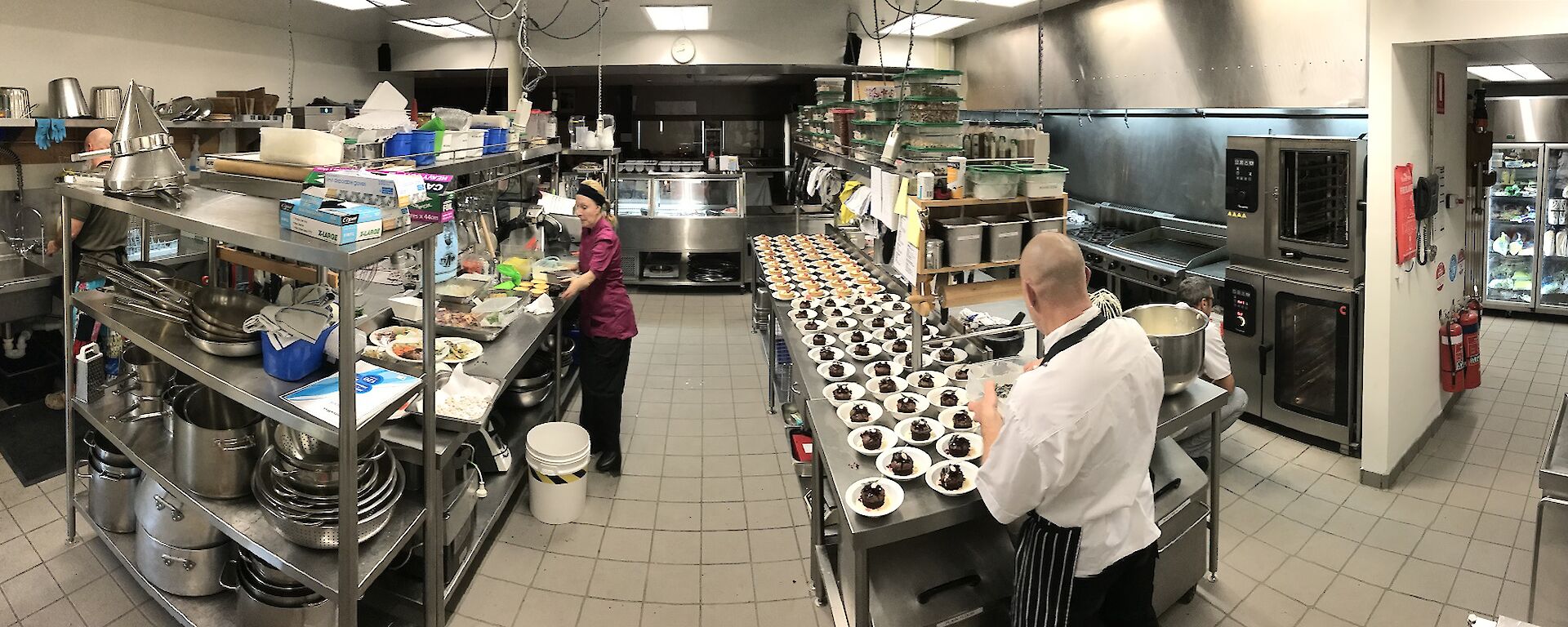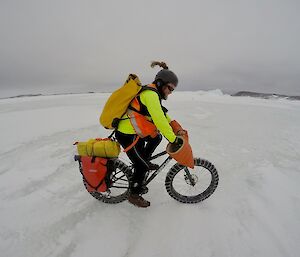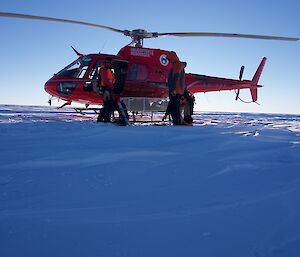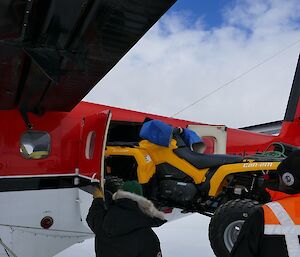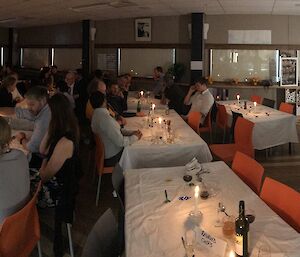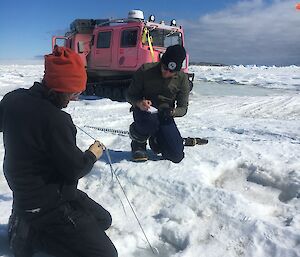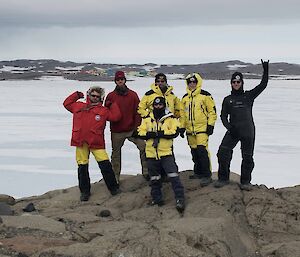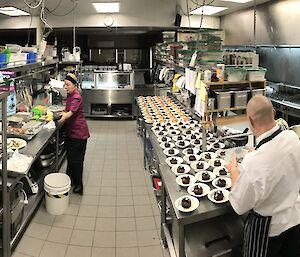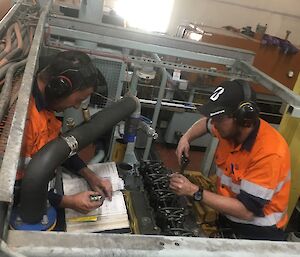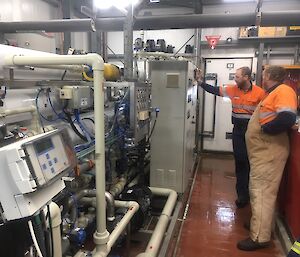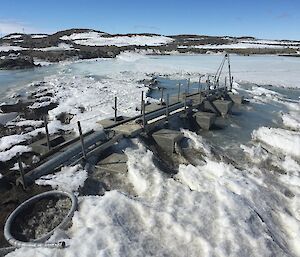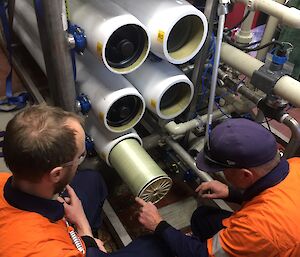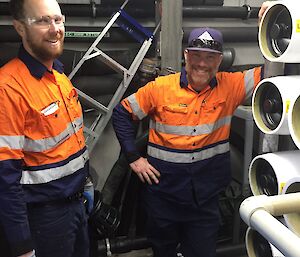This week we have seen a lot of flying operations supporting our field programs.
We established a fuel depot 220km to the east of Davis using helicopters and our Twin Otter ski plane late in the week, and then subsequently established an ice core drilling camp at Mount Brown South some 324 km from Davis.
This camp is still being set up and so far we have made six cargo flights to the camp while Sharon, Bloo and Tessa are busy on the ice setting up tents and making a better skiway with the quad bike and grooming equipment delivered by air.
The infrastructure team has continued work on our reverse osmosis plant to get it up and running to make water later in the summer (see article below from Aaron).
Our mechanics Steve and Woll have been busy in the powerhouse changing a cylinder head on one of our generators while boilermaker John has started to recondition the one they removed for reuse.
A team of seabird biologists with trip leader Lötter was sent to Hop Island, to our south, for a few days seabird research work during the week. We also had a Twin Otter flight in from Mawson with people and another Basler flight out to Casey for folks bound for Hobart.
The helicopters have deployed people and cargo to various field work sites and assisted with airborne surveys of seabird populations on nearby islands.
Our weekend was one of mixed weather, yet some hardy souls still ventured out for walks to Gardner Island and the nearby lookout.On Saturday, we were treated to the most amazing dinner by our three chefs Lesley, Kim and Rocket. We sat down to three courses of modern Australian cuisine including duck breast, salmon rolls, amazing beetroot and chocolate dessert and much more. To see a meal like this produced for 80 diners is an amazing thing!
Our sea ice is hanging in there out the front of the station with regular checking and testing by Lötter and Derryn for both science and operations purposes. Trev and Ali even managed to go cycle touring out to Gardner Island to make use of the ice while it is still with us.
The start of this week has been very snowy with a beautiful white blanket over the station greeting us on Monday morning. The end of the week has us in 40–50 knot (that’s up to 90km/hr) winds so while station work continues our field activity is slowed for the next while.
Robb (Station Leader).

